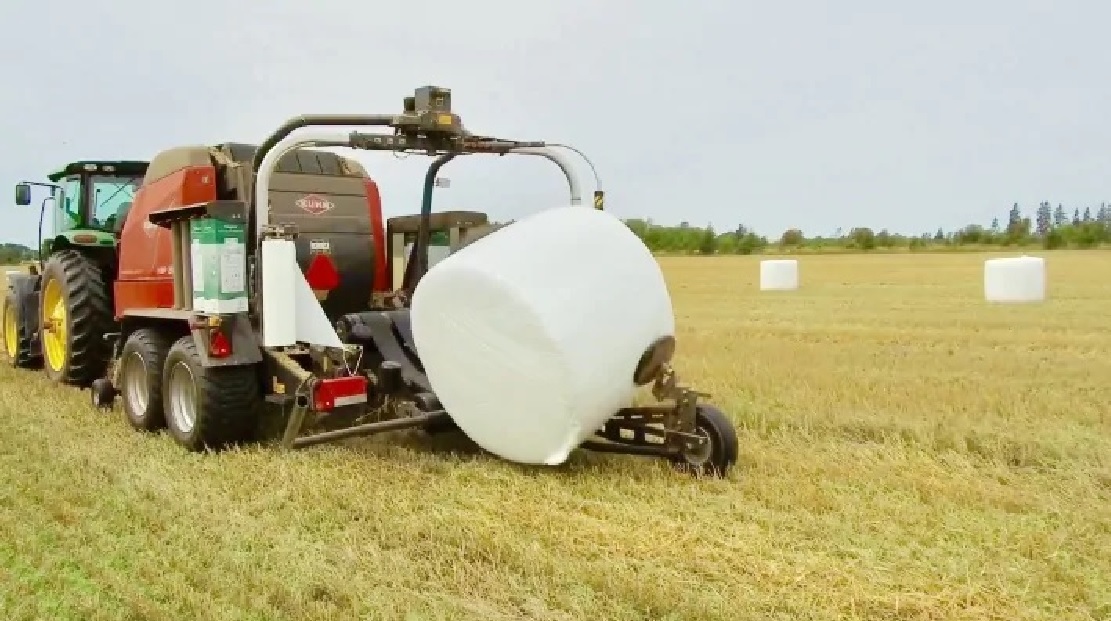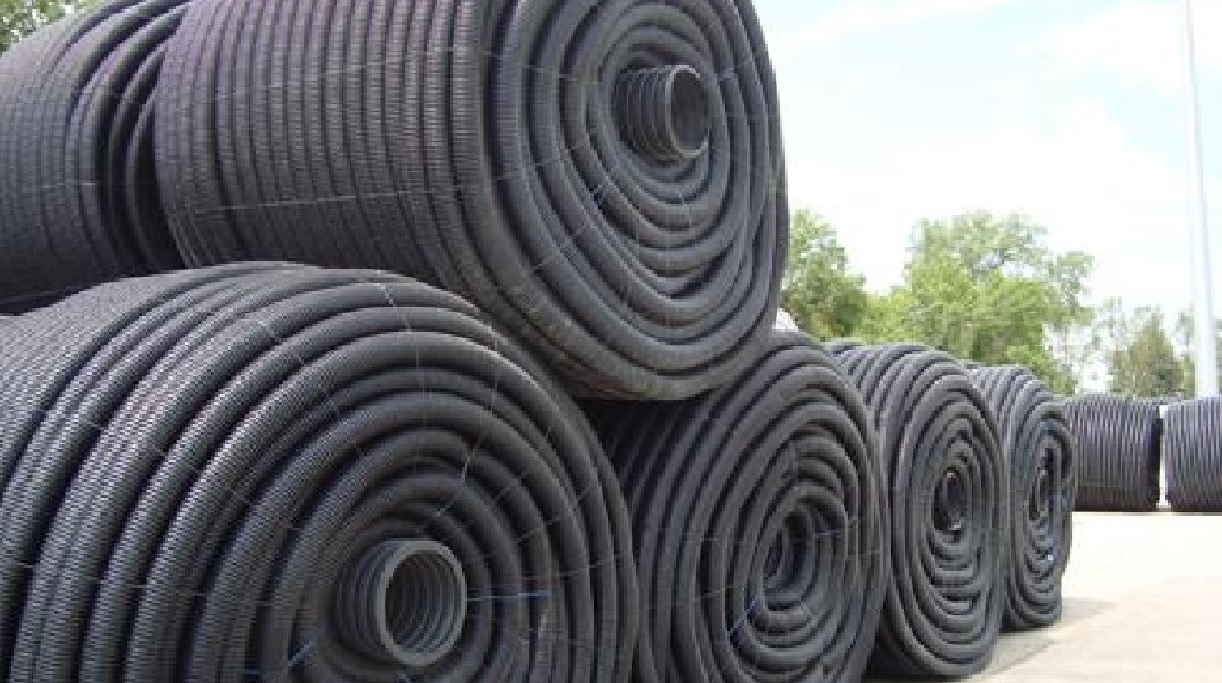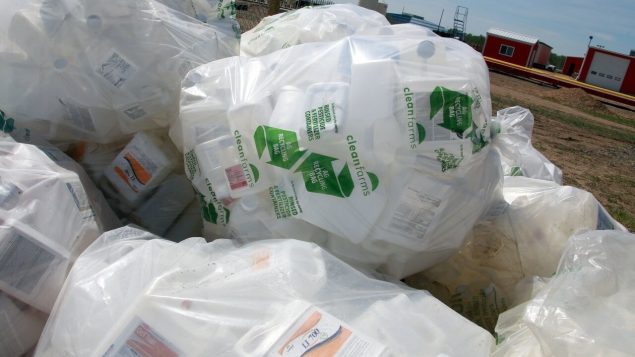Begun back in 2010 Cleanfarms is a non-profit industry effort to recover and recycle the vast amount of single-use plastics used in the agricultural industry.
Mostly an ‘unseen’ issue, farms and the agricultural sector use enormous quantities of large and small plastic containers, plastic twine, feed and fertilizer bags and crop ‘wrap’.
Cleanfarms has released its 2019 Annual Report, showing that farmers and the industry continue to join in the effort to avoid plastic waste in the environment.
For example, last year some 5.5 million jugs of 23 litres and under (5-gallon) were turned in. These often contain pesticides fertilizer, or animal medicines.
RCI: May 15/19: Farmers/ CleanFARMS effort to recycle plastic (interview)
Becoming more popular are larger non-deposit bulk drums and containers fo 23 to 1,000 litre sizes. Last year 55,400 such containers were recovered, a 25% increase by volume from 2018.

Plastic wrapped haybales are common and convenient on today’s farms, but the plastic later becomes waste. It’s now being collected for recylcing ( Pat Martel- CBC)
Collection of seed, fertilizer and pesticide bags in eastern Canada increased 17% by volume over the previous year. These bags are not recycled but are collected for environmentally safe disposal.
Collection and recycling of grain bags in Saskatchewan through a provincial programme also increased with over 2,200 tonnes collected, a 44% increase, while a pilot effort in neighbouring Manitoba saw an increase in grain bags, silage wrap, and twine recovered. Although still in its infancy, 51 tonnes was recovered for recycling compared to 34 tonnes in 2018.
The programme also collects expired farm animal medications and unwanted pesticides for safe disposal. Last year 214,600 kg of pesticides were collected along with over 5 tonnes of expired medications.

The collected farm waste plastics are sorted into type, converted into pellets which are reused by industry to create new product such as drainage pipes often used on farms (CleanFARMS Inc)
In the recovery programme Cleanfarms partners with agricultural retailers and municipalities across the country to establish a convenient network of collection points for materials that would otherwise become toxic waste.
Plastics collected for recycling are turned into new products like farm drainage tiles, or recycled into new plastic bags
The effort to recycle even more of the agricultural waste and improve re-use into new product is being helped through a study this year funded by the Ministry of Environment and Climate Change Canada.







For reasons beyond our control, and for an undetermined period of time, our comment section is now closed. However, our social networks remain open to your contributions.